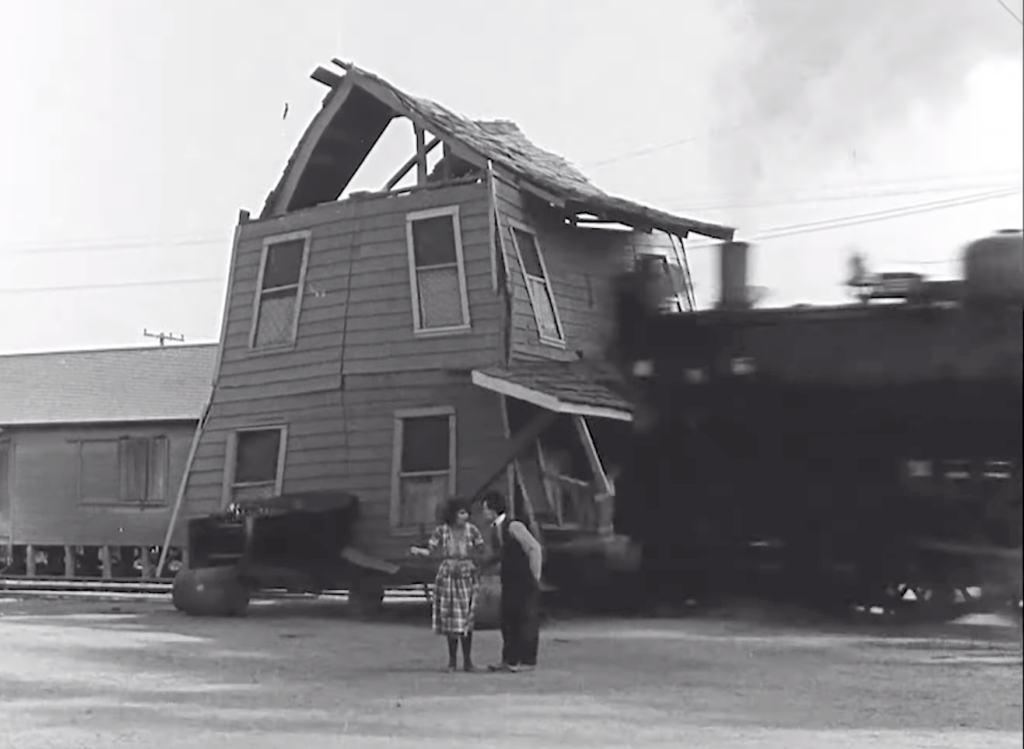One of my favorite natural laws of the universe of Silent Film involves, of all things, sound. That is, sound that happens in a scene, and whether or not it exists.
The acceptance of the sound that should be heard is selective, regardless of whether or not we see what or who is making that sound, and whether it ought to make a sound. In a stage production or a performance of a clown gag or piece of physical comedy business in a theater, there is a certain amount of room given the onstage character’s ability to hear something happening on stage or in a scene with them. The other person on stage may be tip-toeing around and trying not to make any noise. And we will accept that the person they’re hoping won’t catch them doesn’t hear the other character — as long as our primary character doesn’t indicate they hear anything. Maybe.
In any motion picture form, we are presented with a real moving image of what is happening before the camera. Fact. In the universe of Silent Film, though, unless the character before the camera indicates they hear a sound they ought to be, that sound is not audible. By both them and in our identification with what their auditory experience is.
No matter how loud that sound is, and no matter how close the sound is to them.
An easy and blatant example, and one of my favorites, the closing gag in Keaton’s One Week (1920). Buster and his new bride are moving their recently-assembled house across railroad tracks, when it gets stuck on them. While they are arguing about what to do next, we cut to a locomotive barreling down some nearby tracks, then to a close-up of the train whistle blowing, and then to Buster and his bride. They stop. They indicate to us they’ve heard the whistle and train. They look down at the tracks, then panic.
Summoning all their strength, they try to move the house out of the way, to no avail. The train (SPOILER ALERT!) in a clever bit of camera positioning diverts to another track and completely misses the house. Whew.
Buster and his bride heave a sigh of relief. We cut to a big wide shot of the house, with Buster and co-star Sybil Seely between it and the camera, and a second locomotive enters from frame right and plows through the house, demolishing it, surprising both them and us. It is one of the film’s biggest laughs, and a killer ending to one of the great comedy shorts of the silent era.

Why don’t Buster and Sybil hear the other train?
It doesn’t matter. That’s the logic of the gag, and as long as they don’t indicate they’ve heard it, that other train does not make any sound. In fact, it does not exist until it hits the house full-on, a half-second or so after we see it enter the frame.
There are tons of examples of this law of audible sound in silent movies, in comedies and dramas and action pictures. Lions appear in a room, and snarl, but until our lead comic indicates they’ve heard it, they do not react. Do we as an audience buy this? You bet. If a tree falls in the woods, if the lumberjack does not indicate that they’ve heard it, it does not make a sound.
Only in Silent Film.
The first post in this series is here.
The previous post (#29) to this one is here.
The next one (#31) is here.
